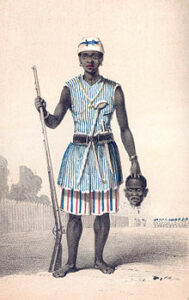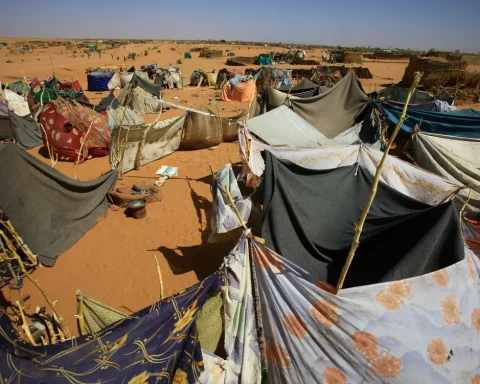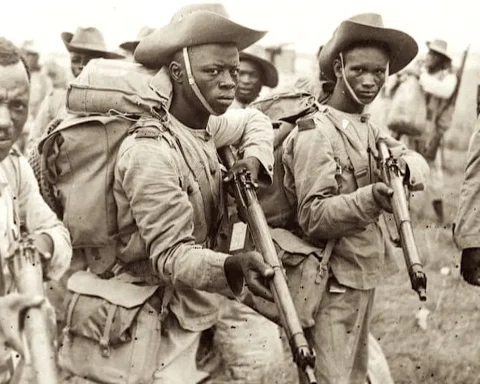 Up till 1904, the Kingdom of Dahomey had an all-female military unit. This practice was said to have been started by King Houegbadja, the third King of Dahomey. He ruled from 1645 to 1685 and, during that time, started the group called the ‘Gbeto’ to hunt elephants.
Up till 1904, the Kingdom of Dahomey had an all-female military unit. This practice was said to have been started by King Houegbadja, the third King of Dahomey. He ruled from 1645 to 1685 and, during that time, started the group called the ‘Gbeto’ to hunt elephants.
His daughter, Queen Hangbe, ruled from 1708 to 1711 and, in that period trained and incorporated female bodyguards. European merchants also recorded this history. In 1727, her brother, King Agaja, made use of female warriors and used them to defeat the neighbouring kingdom.
The female military unit was referred to as Mino, which means “Our Mothers”, by the male military unit. Dahomey began a more strict military policy at the time of King Ghezo, who ruled from 1818 to 1858. The king prioritised military strategy and increased its budget. During his tenure, he made the military more of a formal system than a ceremonial one.
The Europeans called these women soldiers ‘Amazons’ while they preferred to be addressed as Ahosi (king’s wives) or Mino (our mothers). Captain Sir Richard F. Burton, in 1864, recorded more than two thousand women warriors. These women weren’t allowed to be married and had sexual relationships amongst themselves and other women.
The king also recruited soldiers from foreign captives. Some of these female warriors signed up as early as 8. The female military unit had a semi-sacred status and was highly regarded. The women were trained to be indifferent to pain and death and prioritised discipline.
These women warriors were wealthy and had the opportunity to achieve command and influence. They also had an important position in the ground council, where they were involved in debating Kingdom policies. The women’s army had numerous units like the huntresses, riflewomen, reapers, archers and gunners. These units had peculiar uniforms, commanders and weapons.
A publication in 1851 translated the female warriors’ war chants to mean, “ as the blacksmith takes an iron bar and by fire changes its fashion, so have we changed our nature. We are no longer women; we are men.”
When the kingdom became a French protectorate, the troops were disbanded.





